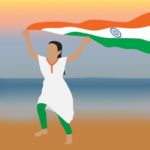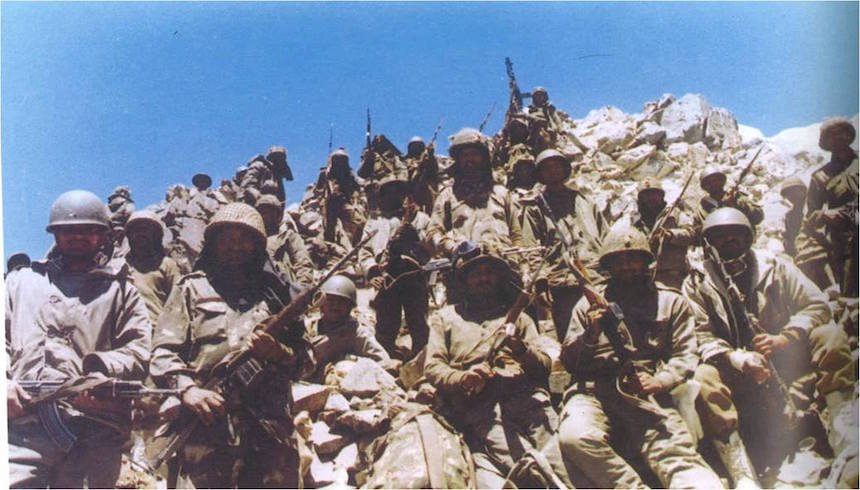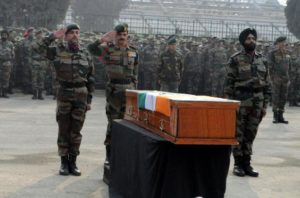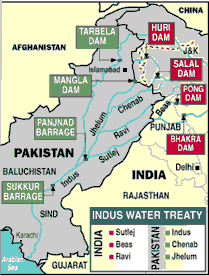Indo-Pak War of 2016
Uri Attack:
In one of the most heart-rending attacks, heavily armed fidayeen militants charged at an Army camp at Uri near LoC around 4am in the morning on 18th September, 2016. 17 grenades were lobbed in three minutes causing major fire to the barracks and tents burning thirteen of our jawans instantaneously.
The administrative base had large strength of troops of units, which resulted in the death of 19 soldiers. The 19th soldier succumbed to his injuries on 30 September, 2016.
Our soldiers managed to slay the terrorists and Director General of Military Operation (DGMO), Lt Gen. Ranbir Singh said that the four terrorists were foreign terrorists belonging to Pakistan based armed group Jaish-e-Mohammad tanzeem. Four AK-47, four under barrel grenade launchers and several other war ammunitions were recovered from them.
It is also said that our army recovered a map from the slain terrorists showing detailed plan of action with markings and location in Pashtun. The terrorists had a fair amount of idea about the routine of our jawans, due to which they attacked when battalions were changing duty and were unarmed.
However, the Pakistani DGMO claimed that India’s allegations were unfounded and premature and that there were no infiltrations at the border.
Indian Prime Minister had condemned the attack calling it ‘a cowardly attack,’ and assured the nation that the ‘despicable attack would not go unpunished.’ A stronger response came from Home Minister, Rajnath Singh when he tweeted that ‘Pakistan is a terrorist state and should be identified and isolated as such.’
This attack is in the wake of growing unrest in Kashmir that has been under curfew for over three months now. At least 87 people have been killed and many injured according to reports. The state has been divided between parts that are ruled by India and Pakistan. Reports suggest that Pakistan has been encouraging a major secessionist movement in Kashmir, though the State of Pakistan have consistently denied it.
India Strikes Back!
Responding to growing pressure from all sources including the opposition, Prime Minister Narendra Modi took a tough stand against the Uri attack. In a rather tactical and brilliantly executed move made after thorough planning, India made a surgical strike on the terrorist camps across the border in Pakistan that had assembled to infiltrate into India.
The strike led to the death of around 30-40 terrorists and two Pakistani soldiers who were interestingly in the same camp as the terrorists. The exact number of the terrorists killed has not been revealed.
The operation started around midnight at 12:30 AM. The commandos were air dropped at LOC from where they crossed to the Pakistan occupied Kashmir. The infiltration was up to 3 kms from the border. Seven terrorist camps were destroyed and the mission ended at 4:30 in the morning and the commandos returned to India before sunrise.
However, Pakistani Army said that India’s claim of having conducted a surgical strike is a mere ‘illusion,’ as there was only cross border strike conducted by India that led to the death of two of their soldiers.
Indus Treaty:
In the wake of the mounting tension, India has planned of all possible ways to retribute Pakistan including non-military ways. One of them being through Indus Water Treaty.
After the India-Pakistan partition in 1947, most of the irrigation canals of the Indus river went to the territory of Pakistan and India was left with the a large unirrigated region, the Thar Desert. Therefore, the two countries entered into the Indus Water Treaty.
It is a water distribution treaty signed by then Indian Prime Minister Jawaharlal Nehru and Pakistan Prime Minister Ayub Khan on September 19, 1960 in Karachi. It was brokered by the World Bank. Under the treaty, control over eastern rivers of Beas, Ravi and Sutlej were given to India and control over western rivers of Indus, Chenab and Jhelum were given to Pakistan.
The treaty has been intact even after three indo-pak war in 1962, 1971 and 1999.
In the meeting held on September 27, 2016 chaired by Prime Minister Narendra Modi, India decided against violating the treaty as it would set a bad precedent with the other countries that India has a water sharing agreement with like Bangladesh, China etc. Also, India does not have enough storage capacity to obstruct flow of Indus water to Pakistan immediately.
However, the government suspended the Indus meeting of High Commissioners that takes place every two years in order to solve any dispute arising out of the Treaty. The permanent Indus Commission has also met during indo-pak war in 1965, 1971 and Kargil wars. Due to this, Pakistan Prime Minsiter Nawaz Shariff stated that revoking Indus Water treaty would be considered as an act of war and that Pakistan would seek the International Court of Justice’s interference in such a case.
Instead, what India plans to do is to use the benefit it has not used in all these years against Pakistan. It has decided to use waters of western rivers upto 3.6 Million Acre Feet for irrigation, power and storage purposes. This would be well within the Indus Treaty but would cause a heavy loss to Pakistan as India has not used this benefit in all these years.
Therefore, while India cannot violate the treaty, it can do away with the under utilisation of its entitlement under the Treaty and cause a heavy damage to Pakistan.
SAARC Summit Cancelled:
Additionally, Pakistan was successfully isolated when the 19th SAARC summit to be held in Islamabad was cancelled owing to boycott from not just India but also Afghanistan, Bhutan, Bangladesh and Sri Lanka.
End trade relations with Pakistan:
Apart from the URI attack, Indus Water Treaty and Pakistan’s isolation in the SAARC Summit, India must make use of its position of being a strong economy in the South east region and cut all trade relations with Pakistan. After all, India is one of its biggest markets and cutting trade relations would be a big blow to Pakistan.
Also, India had conferred the title of Most Favoured Nation to Pakistan in 1996 under WTO’s General Agreement on Tariffs and Trade (GATT). With this, restrictions on imports on Pakistan was removed and India had to impose same tariff rates as it does to other countries.
India’s dominance can be understood from the fact that India’s exports to Pakistan amount to USD 2.17 billion while imports amount to less than just USD 500 million. The meeting convened to discuss the Most Favoured Nation status has been deferred to next week for reasons unknown.
It remains to be seen what this unrest brings forth in the ties of the two nations. We can only hope that innocent lives are lost no longer.
Picture Courtesy: Wikimedia











There Are 2 Comments